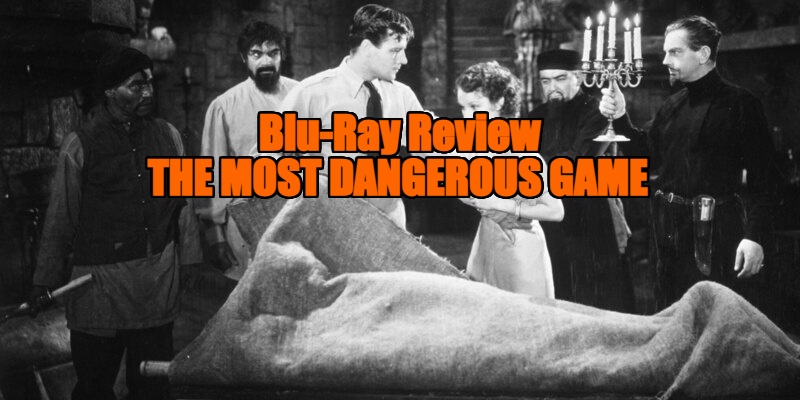
Review by
Eric Hillis
Directed by: Irving Pichel, Ernest B. Schoedsack
Starring: Joel McCrea, Fay Wray, Leslie Banks, Robert
Armstrong
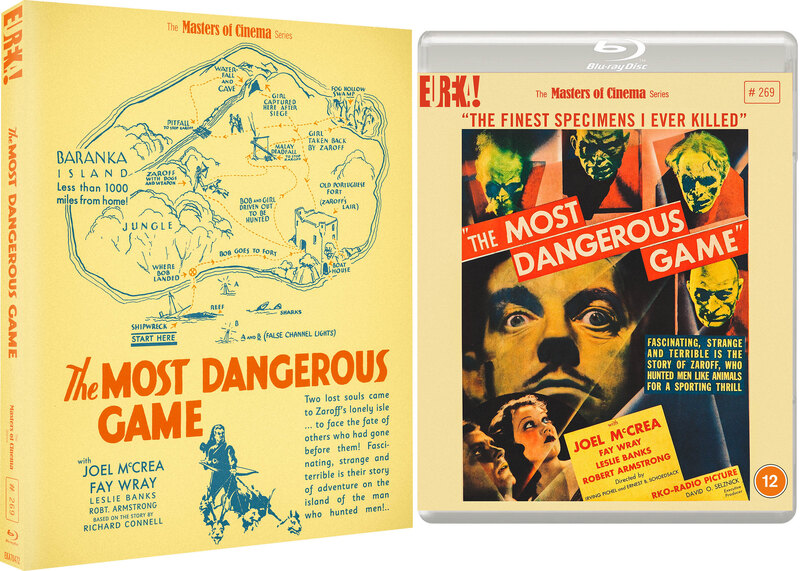
A year before unleashing the eighth wonder of the world on cinemagoers,
the producing and directing team of Merian C. Cooper and
Ernest B. Schoedsack (co-directing with Irving Pichel)
took audiences to another exotic island.
Based on Richard Connell's short story of the same name,
The Most Dangerous Game sees Joel McCrea play famed
hunter Robert Rainsford, the only survivor of a shipwreck in the
Pacific. Washed up on a remote island, Rainsford is surprised to come
across a lavish mansion, the home of exiled Russian Count Zaroff (Leslie Banks). The Count is suspiciously joined by two other shipwreck survivors -
Fay Wray's Eve Trowbridge and her alcoholic brother Martin (Robert Armstrong).
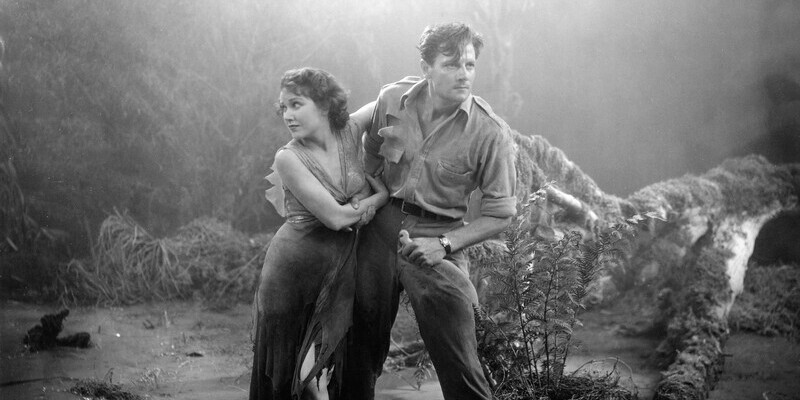
Eve tries to warn Robert that their host is not all he seems, but
Zaroff is so sinister that I don't think such warnings are entirely
necessary. Rainsford doesn't seem like the brightest spark though, and
is won over by Zaroff's flattering knowledge of his hunting exploits.
When Zaroff attempts to coerce Robert in joining him on a hunt for "The
most dangerous game," (that's humans to you and I), Robert refuses and
finds himself the prey, along with Eve.
The film's continued influence has been palpable, with elements of its
story seen in everything from Predator to
The Hunger Games, and numerous straight to VOD movies borrowing its premise every year.
Made at the height of the Great Depression, audiences may have found the
tale of a rich megalomaniac using others for his entertainment quite
poignant, and the film's many imitators have increasingly focussed on a class dynamic that's absent here.
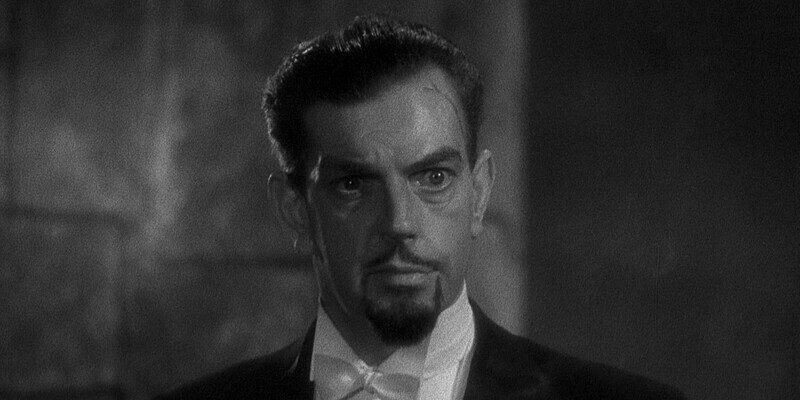
As the twisted count, Banks is superb, even if his accent is more
Scottish than Russian. Why he didn't make more genre appearances is
baffling, given this was the era of Frankenstein and
Dracula. During WWI he suffered an injury which paralysed the left half of his
face, a wound he exploits to add a sinister edge to the character.
McCrea gives an early indication of the all-American star he would go on
to become while Wray lays down the foundations of becoming cinema's
first great scream queen. King Kong's leading man Armstrong delivers one of the all-time great drunk
performances.
Has there ever been more impressive set design than the great horror
movies of the 1930s? The attention to detail here is outstanding, a
practice that's sadly been lost in these greenscreen times. Even the
door knocker on Zaroff's island fortress is creepy, a miniature
representation of a giant beast holding a woman in his monstrous hands
that is replicated as a giant mural on Zaroff's staircase. Did the
filmmakers have Kong in mind when designing this? Yes, the two movies
were actually shot back to back. Were I a rich collector of movie
memorabilia, this item would most definitely be mounted on my front
door. Zaroff's island resembles the more famous Skull Island from Kong,
all creeping vines and rubber bats flying in the background. This is no
coincidence, as the same jungle sets were utilised for both
pictures.
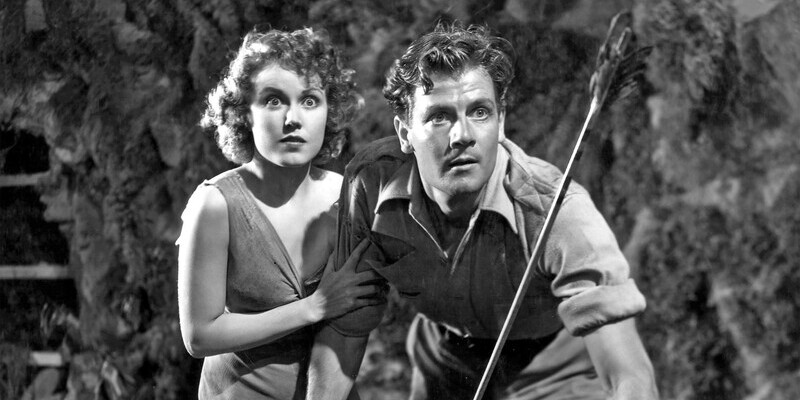
To get the most from such production design takes a skilled cameraman,
and Henry W Gerrard does some thrilling work here. He began in
silents so knew the importance of a strong image. Action sequences of
this era are often quite clunky but Gerrard's roving camera adds to the
excitement. There are some fantastic tracking shots through the jungle,
the foliage brushing against the lens and really putting you in the
scene. Sadly Gerrard passed away three years later on the cusp of
greatness, having just lensed Of Human Bondage.
Running at a brisk 63 minutes, today's filmmakers could learn a lot
from this movie's pacing. There's not an ounce of fat on this script and
it still holds up as the definitive version of this oft-told and copied
tale.

Extras:
A new audio commentary with author Stephen Jones and author/critic
Kim Newman; a new interview with Newman on the “hunted human” sub-genre;
a new interview with film scholar Stephen Thrower; and a collector’s
booklet featuring a new essay by Craig Ian Mann, illustrated with
archival imagery.

The Most Dangerous Game is on UK blu-ray from October 24th from Eureka
Entertainment.
